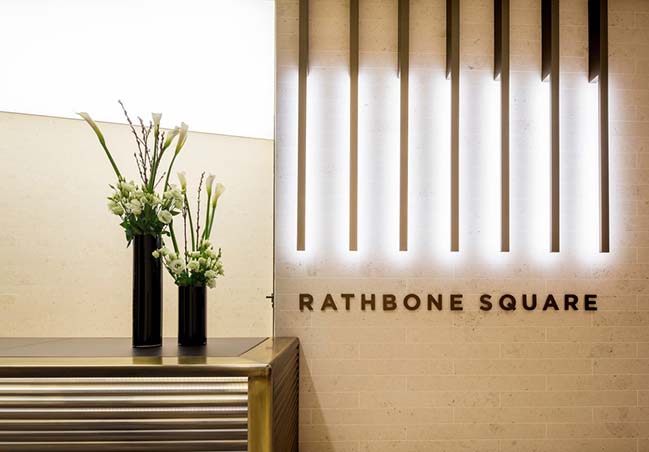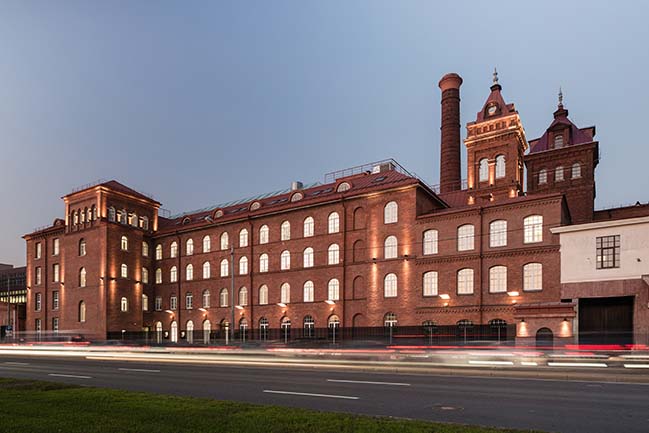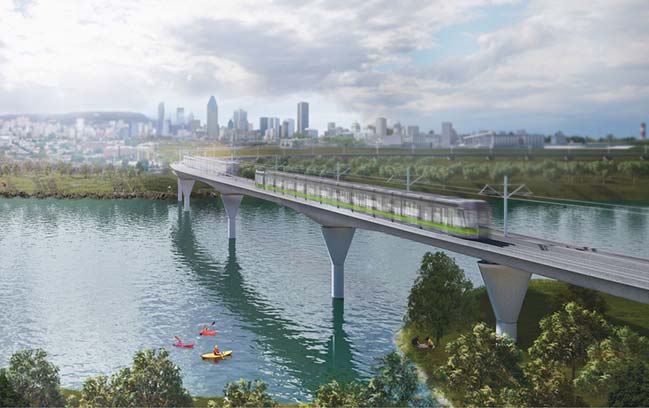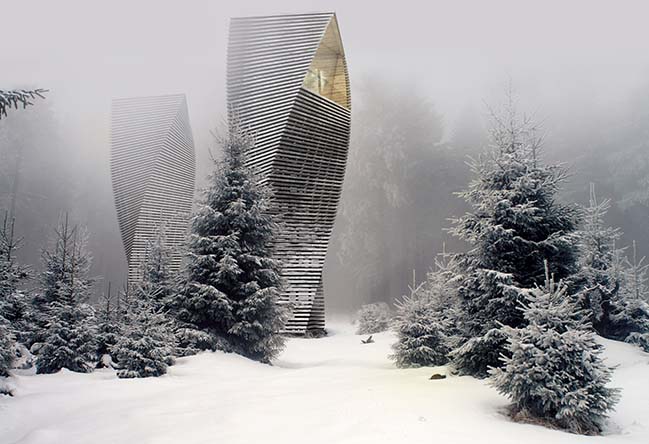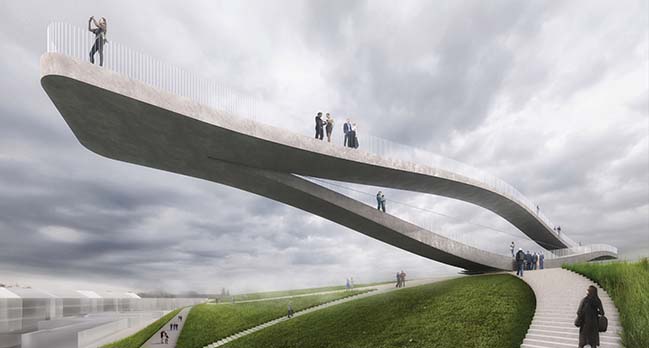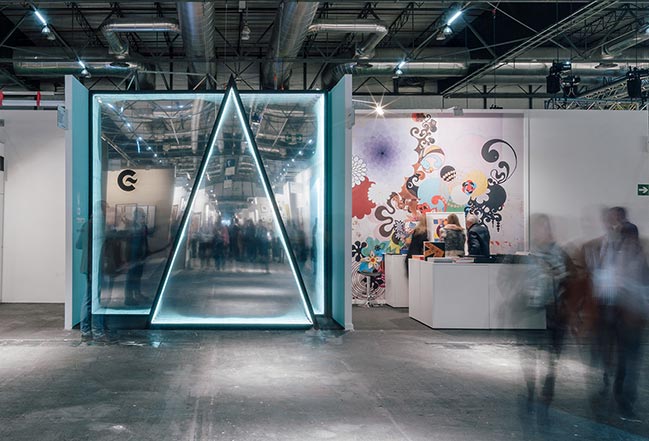04 / 18
2018
"Living Nature (La natura dell’abitare)", a garden pavilion where all four seasons coexist with each other simultaneously, has opened, 17 April, in Milan’s main square, Piazza del Duomo. Developed by international design and innovation office CRA-Carlo Ratti Associati for Salone del Mobile, Living Nature is the premier exhibition at the world’s leading design and furniture fair.
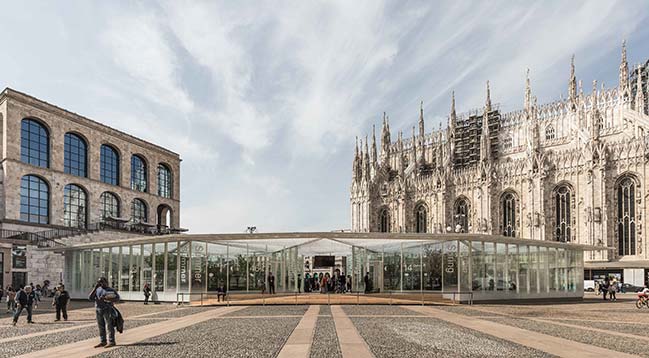
© Delfino Sisto Legnani and Marco Cappelletti
“Living Nature”, which stems from a concept by CRA and Studio Römer, makes use of an innovative energy management system for climate control, with green spaces curated by Patrick Blanc and Flavio Pollano. The project embodies the values of Salone del Mobile’s 2018 Manifesto, exploring a new relationship between nature and design. It will be open to the public from 17th to 25th April 2018, and will also play host to a series of talks on nature and sustainability with an international array of speakers.
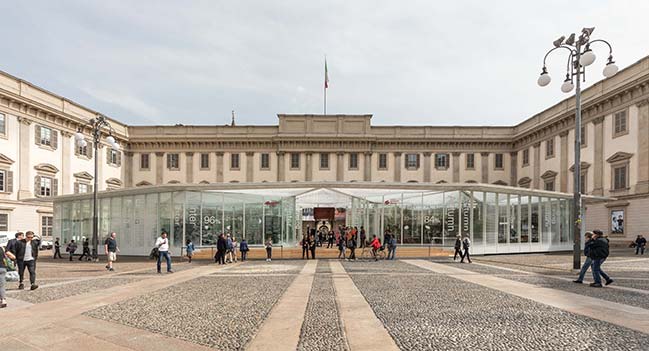
© Delfino Sisto Legnani and Marco Cappelletti
The 500 square-meter, 5-meter high pavilion will house four natural, climatic microcosms, corresponding to the four seasons. Visitors will be immersed in nature as they wander through winter, spring, summer and autumn. Each season will be enriched by a display of familiar design objects by some of the most prestigious furniture brands, including Arper, Cappellini, Ethimo, Glas Italia, Kartell, Living Divani, Magis, Moroso. Each season will present a different theme - living room in spring, picnic in summer, office in autumn, playroom in winter. While people can throw snowballs in the winter garden or work on their suntan in the summer garden, the pavilion also puts forward a poetic integration between interior architecture and nature.
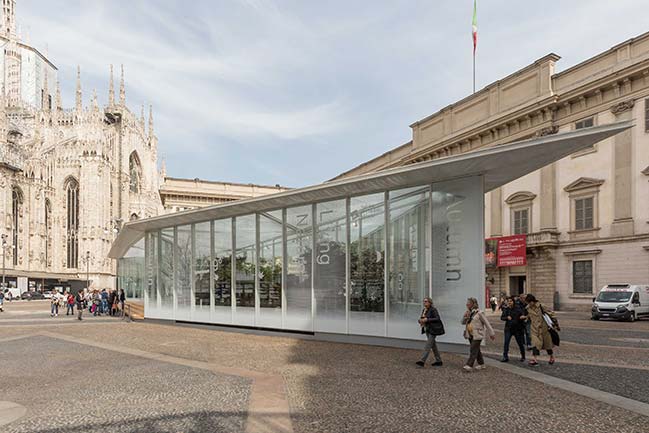
© Delfino Sisto Legnani and Marco Cappelletti
In addition to creating a fun and whimsical space in the heart of the city, “Living Nature” also aims to explore two crucial themes: the relationship between nature and the city, and the effects of climate change on all of us.
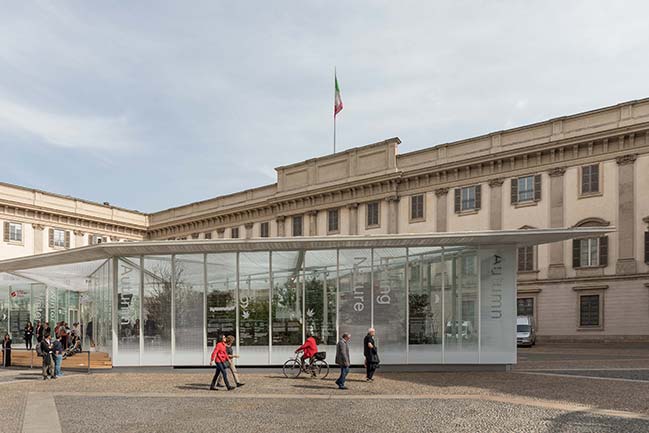
© Delfino Sisto Legnani and Marco Cappelletti
The relationship between nature and the city is a recurring theme in Western history, from ancient Greece to Ebenezer Howard’s Garden Cities to Frank Lloyd Wright’s urban utopias. “In the 20th century, cities expanded outwards to conquer nature and the countryside. We believe that today’s challenge is the opposite: How can we bring nature back to the city and into the home?”, says Carlo Ratti, founding partner at CRA and director of the MIT Senseable City Lab: “In recent years, Milan has been at the forefront of such research, with landmark projects like Stefano Boeri’s Bosco Verticale. 'Living Nature' expands on this concept, raising new questions related to sustainability in the domestic and collective spheres”.
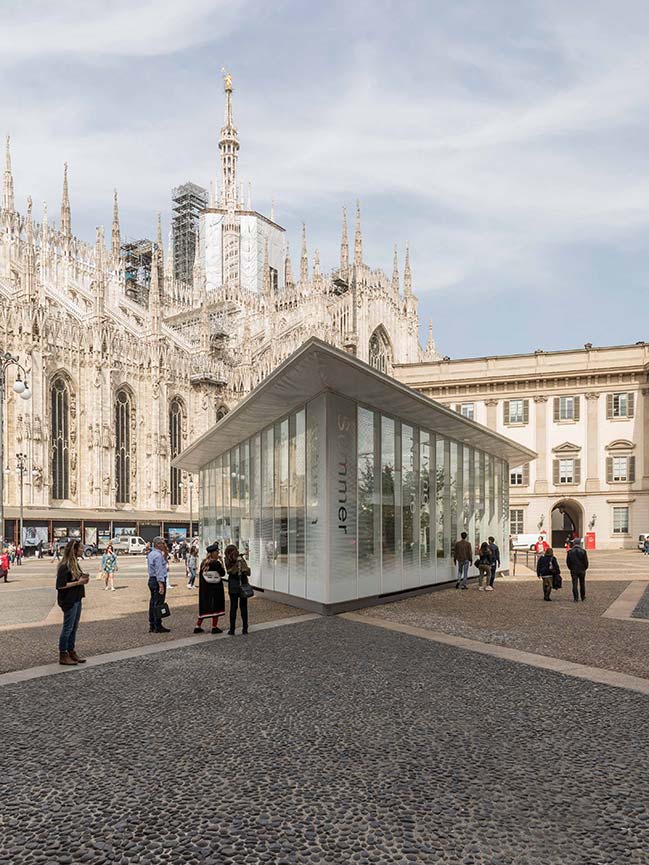
© Delfino Sisto Legnani and Marco Cappelletti
A key issue raised by “Living Nature” is climate change. The plants in the pavilion, selected by French botanist Patrick Blanc, are housed under a 5-meter-high selective crystal membrane that dynamically filters the sun based on input from light-reactive sensors. Above the pavilion, photovoltaic panels generate clean energy, providing the required energy to cool the winter area, or to heat the summer space. Batteries provide additional storage to even out high and low peaks of energy production.
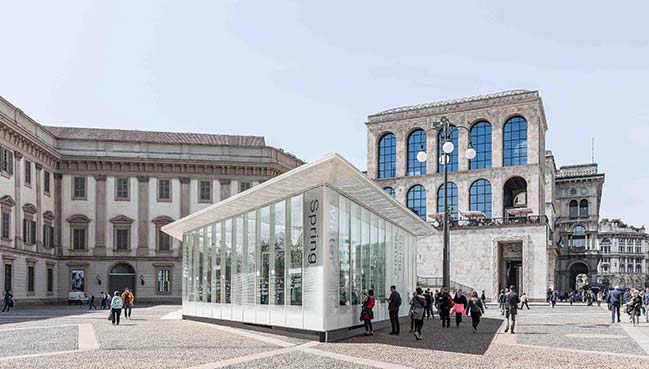
© Delfino Sisto Legnani and Marco Cappelletti
The plants in the pavilion, selected by French botanist Patrick Blanc, are housed under a 5-meter-high selective crystal membrane that dynamically filters the sun based on input from light-reactive sensors. Above the pavilion, photovoltaic panels generate clean energy, providing the required energy to cool the winter area, or to heat the summer space. Batteries provide additional storage to even out high and low peaks of energy production.
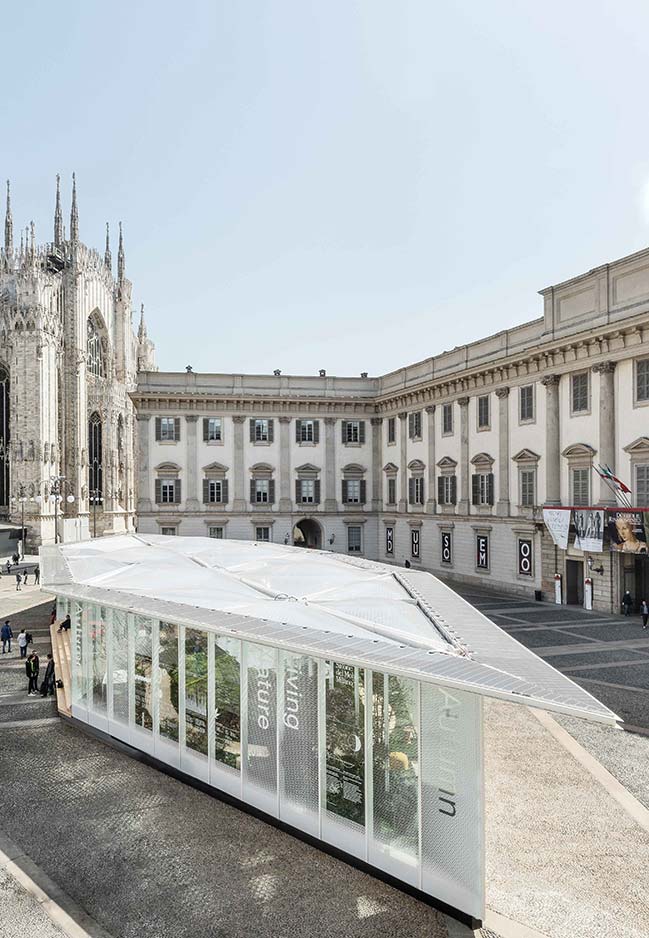
© Delfino Sisto Legnani and Marco Cappelletti
“In light of climate change and the threat it poses to cities worldwide, we need to devise strategies for climate remediation to improve living conditions in our cities”, says Antonio Atripaldi, project leader at CRA. “If climate control is often associated with excessive energy consumption, this project offers a radical change of perspective, demonstrating the feasibility of climate control technology that is also sustainable, with vast potential for future applications.”
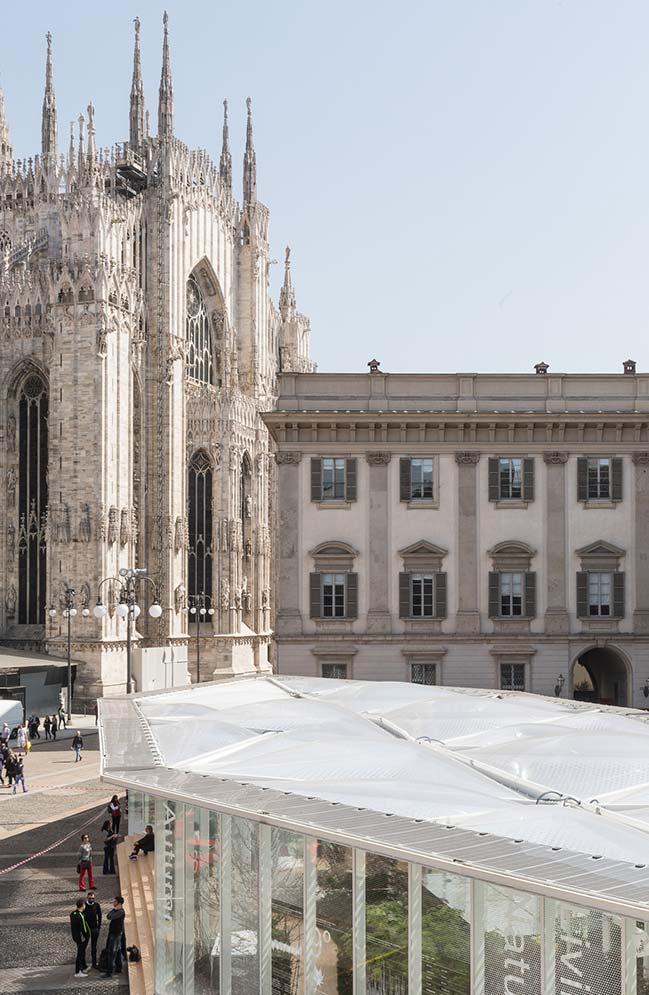
© Delfino Sisto Legnani and Marco Cappelletti
Living Nature houses four different ecosystems, with 23 species of tall trees that enjoy perfect lighting and temperature conditions in an optimal habitat. The winter area includes two types of acer and pine trees, along with a Himalayan birch, Chinese scholar tree, and Oriental spruce. The spring area features a Japanese flowering crabapple and a Tibetan cherry 'Branklyn' -- both in full bloom -- along with a Magnolia x loebneri, flowering myrobalan, a katsura tree and two varieties of amelanchier tree. The summer area contains the welcome shade of a common oak and a common alder tree, and a small-Leaved lime, common hornbeam and soft tree fern. Finally, in the autumn section, a crab apple 'Rudolph', Japanese maple and Persian ironwood make for a riot of warm colours. In addition to the tall trees, each season’s space is also characterised by garden compositions featuring plants and flowers that are typical of that time of the year. There is also a huge variety of shrubs, grasses and bulbous plants for visitors to look at as they wander around the pavilion.
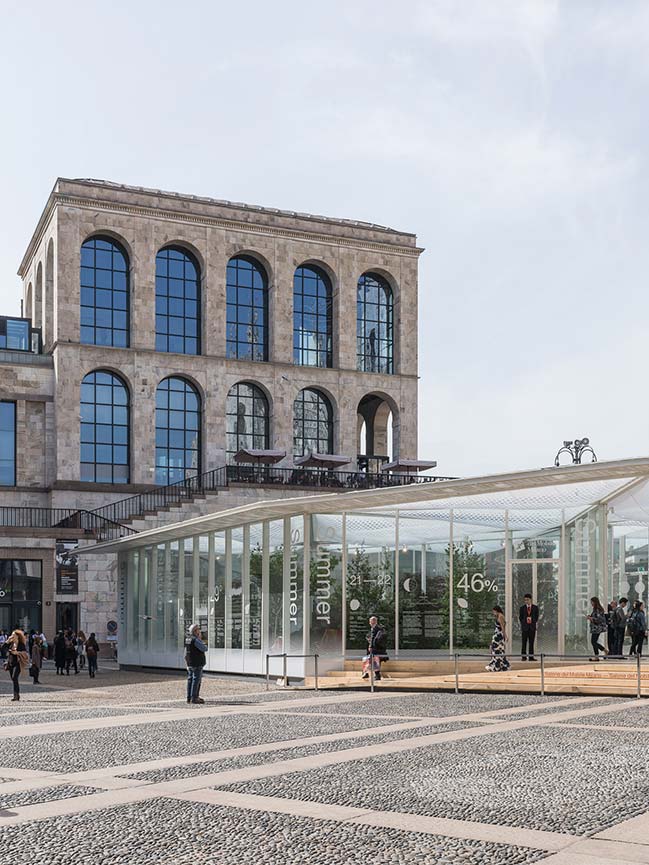
© Delfino Sisto Legnani and Marco Cappelletti
“Living Nature” continues CRA’s ongoing research into the relationship between nature and the city. Previous CRA projects that touch on this theme include Trussardi Dehors in Milan’s Piazza della Scala, designed with Patrick Blanc, which included Italy’s first vertical garden; the master plan to develop the former Milan Expo World site into a park for science, knowledge and innovation (MIND-Milano Innovation District), featuring a one-mile long linear park as the neighborhood’s main mobility axis; and Singapore’s CapitaSpring, a 280-meter high tower, co-designed with Bjarke Angels group, that features a green oasis core. CRA also curated the “Green & the Grey” – an exhibition exploring the technology-driven reconciliation between city and nature that was a part of Toronto’s EDIT Expo celebrating 150 years of Canadian independence.
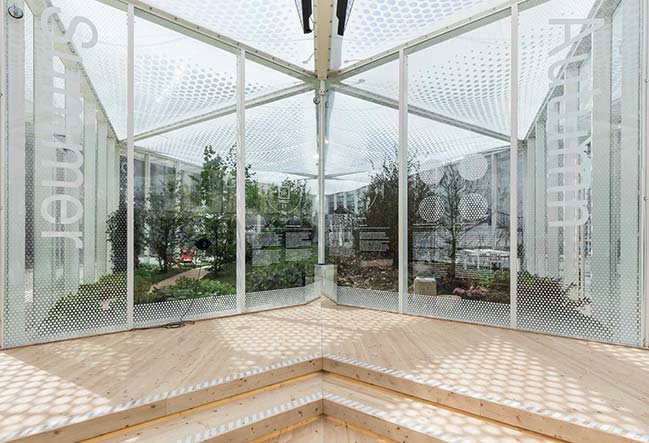
© Delfino Sisto Legnani and Marco Cappelletti
“As designers, I think today we find ourselves at an utopia-or-oblivion crossroads", adds Ratti: "Oblivion, if we are not able to rise to the challenge of the changes underway. Utopia, if we succeed in becoming the creators of transformation in the “artificial world”, starting with our cities and our homes. Living Nature aims to foster a new debate on sustainability - what if the next frontier of design is to reimagine urban climate?".
[ VIEW MORE DETAIL ]
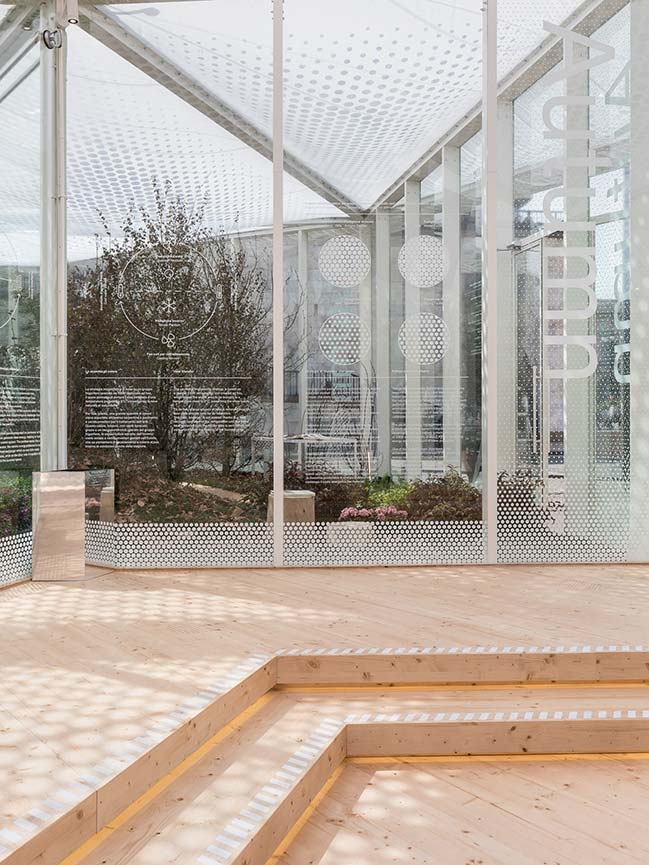
© Delfino Sisto Legnani and Marco Cappelletti
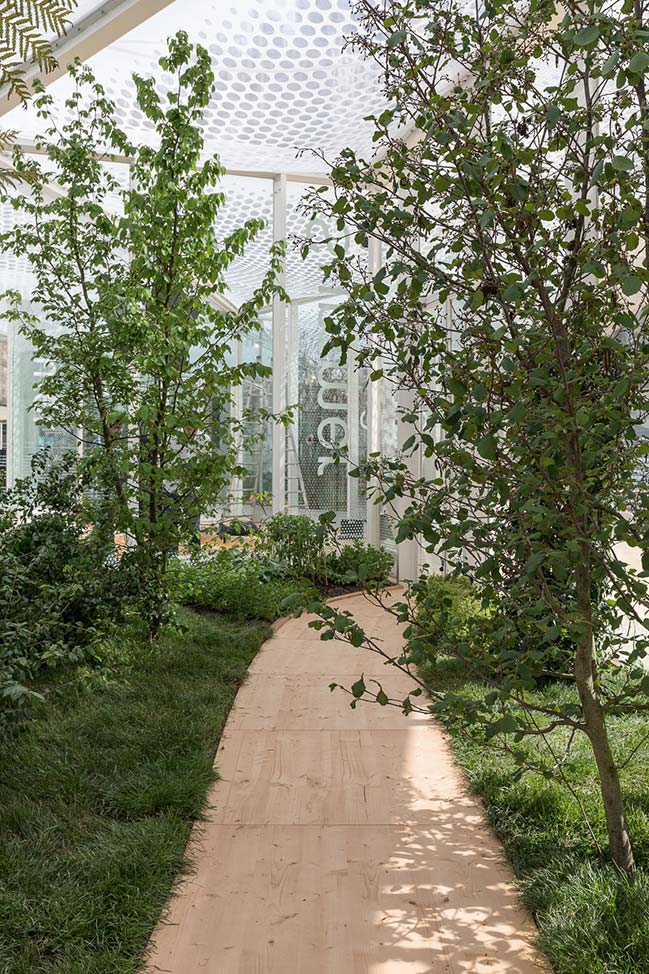
© Delfino Sisto Legnani and Marco Cappelletti
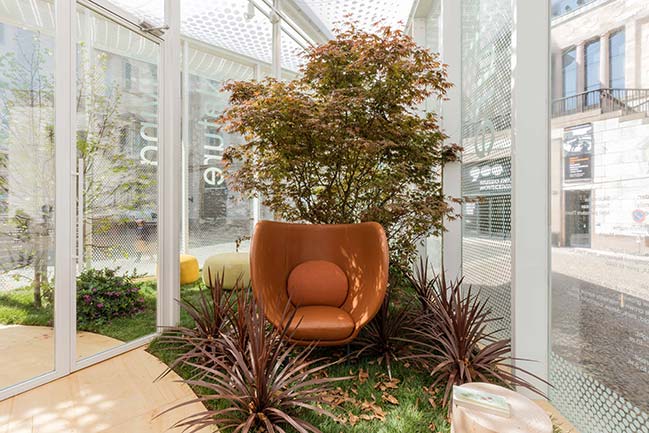
© Delfino Sisto Legnani and Marco Cappelletti
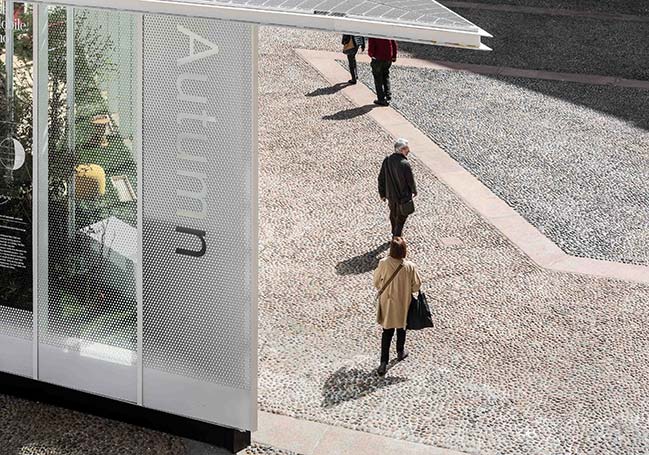
© Delfino Sisto Legnani and Marco Cappelletti
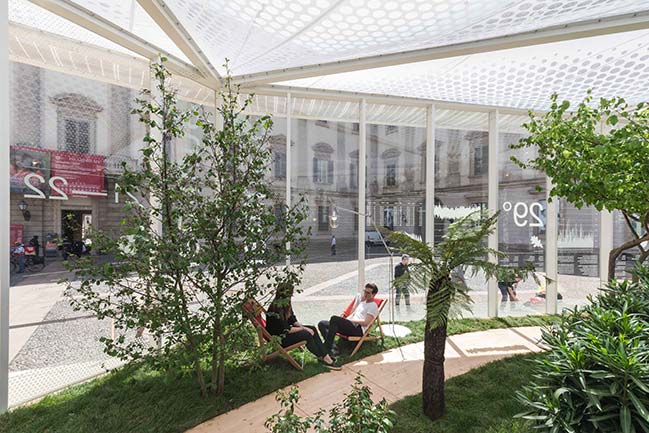
© Delfino Sisto Legnani and Marco Cappelletti
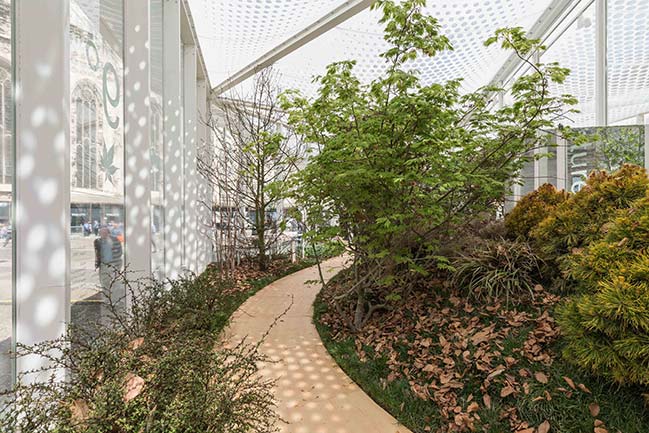
© Delfino Sisto Legnani and Marco Cappelletti
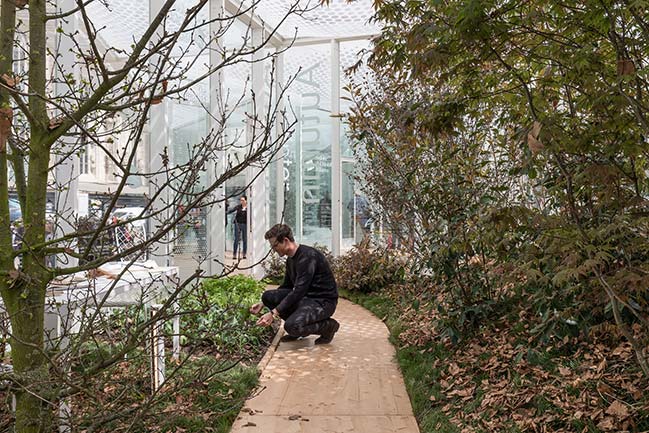
© Delfino Sisto Legnani and Marco Cappelletti
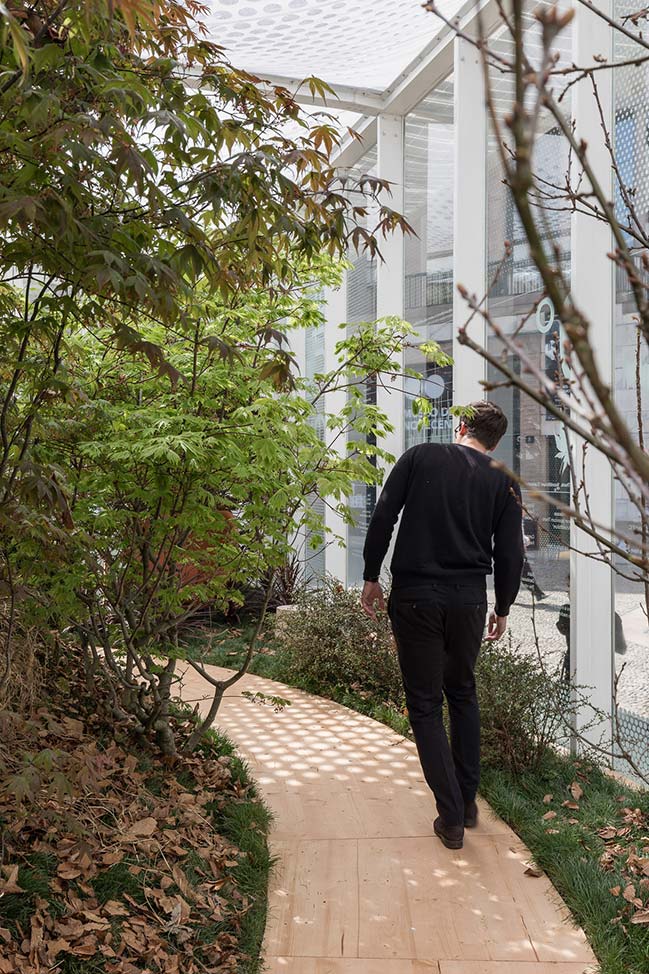
© Delfino Sisto Legnani and Marco Cappelletti
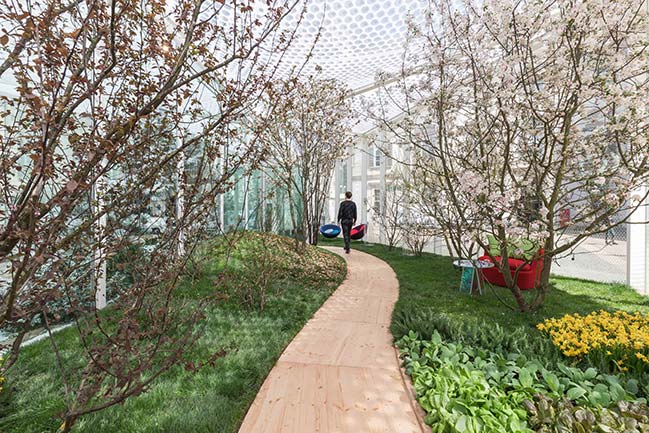
© Delfino Sisto Legnani and Marco Cappelletti
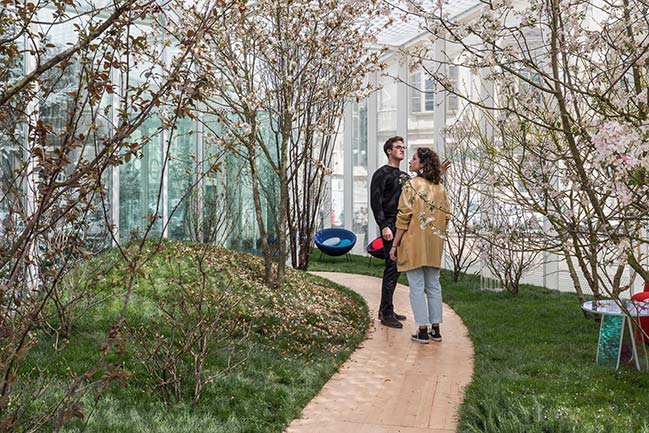
© Delfino Sisto Legnani and Marco Cappelletti
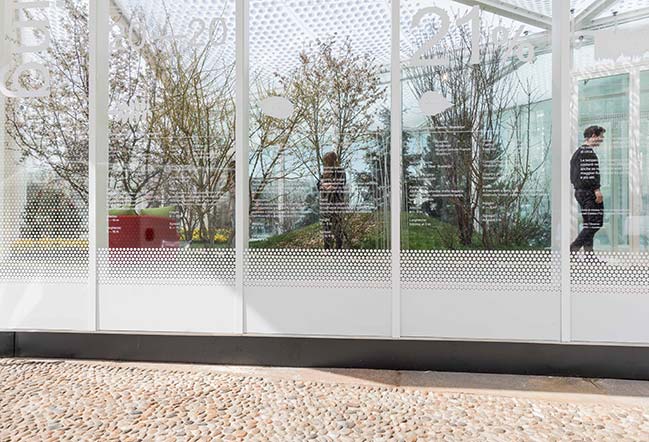
© Delfino Sisto Legnani and Marco Cappelletti
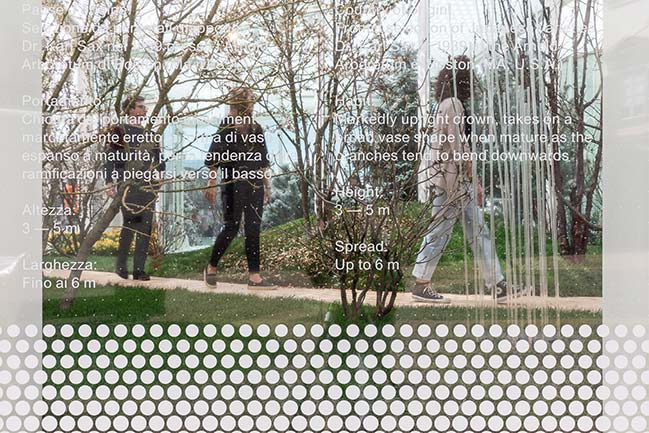
© Delfino Sisto Legnani and Marco Cappelletti
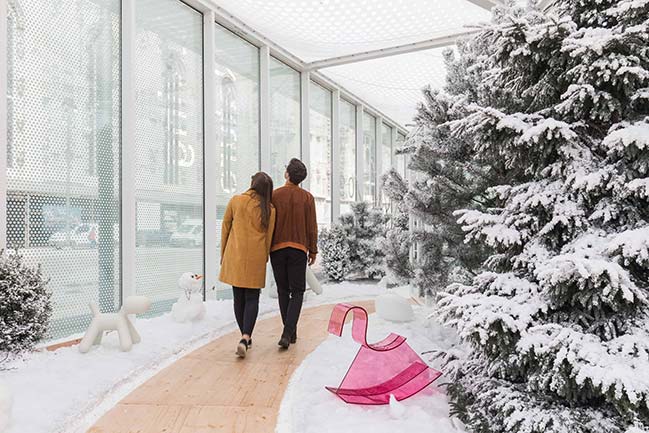
© Delfino Sisto Legnani and Marco Cappelletti
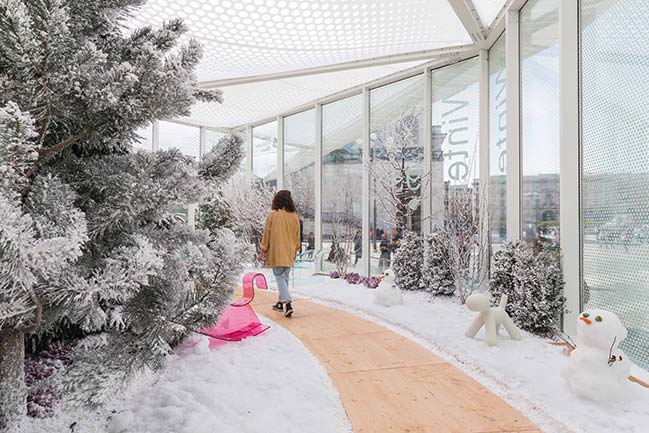
© Delfino Sisto Legnani and Marco Cappelletti
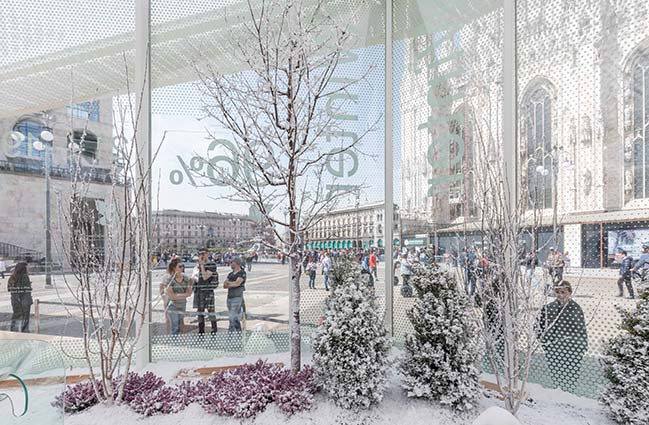
© Delfino Sisto Legnani and Marco Cappelletti
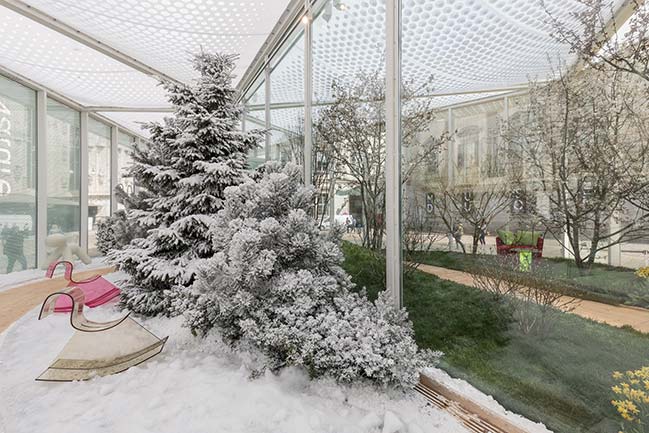
© Delfino Sisto Legnani and Marco Cappelletti
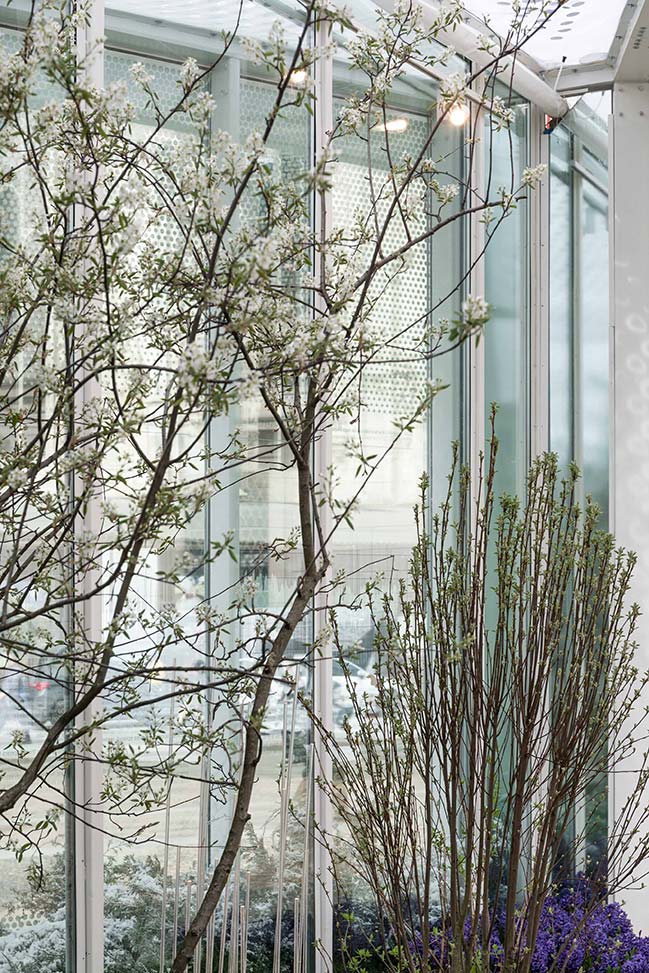
© Delfino Sisto Legnani and Marco Cappelletti
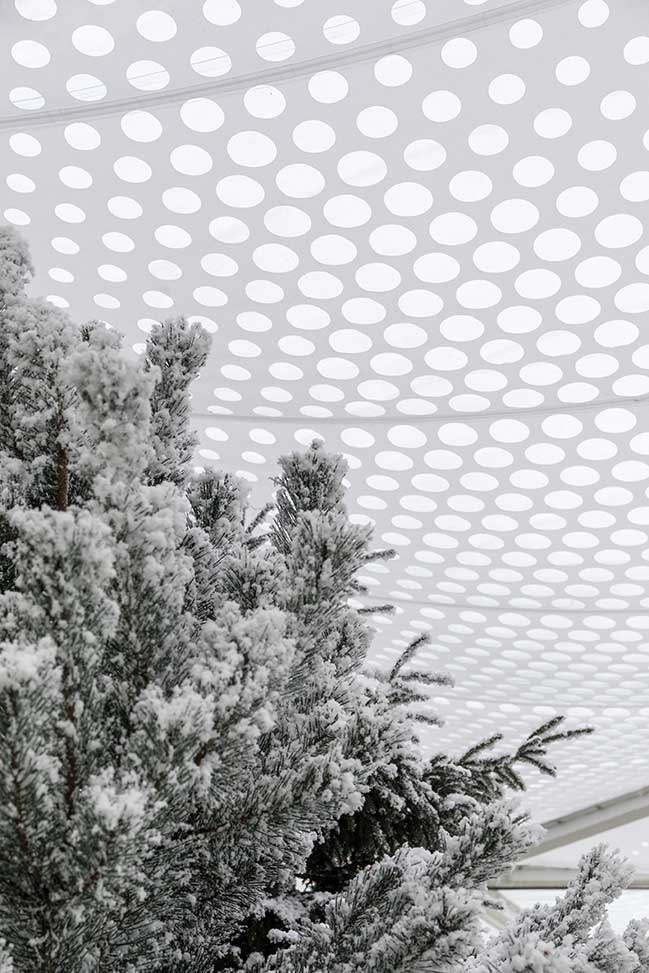
© Delfino Sisto Legnani and Marco Cappelletti
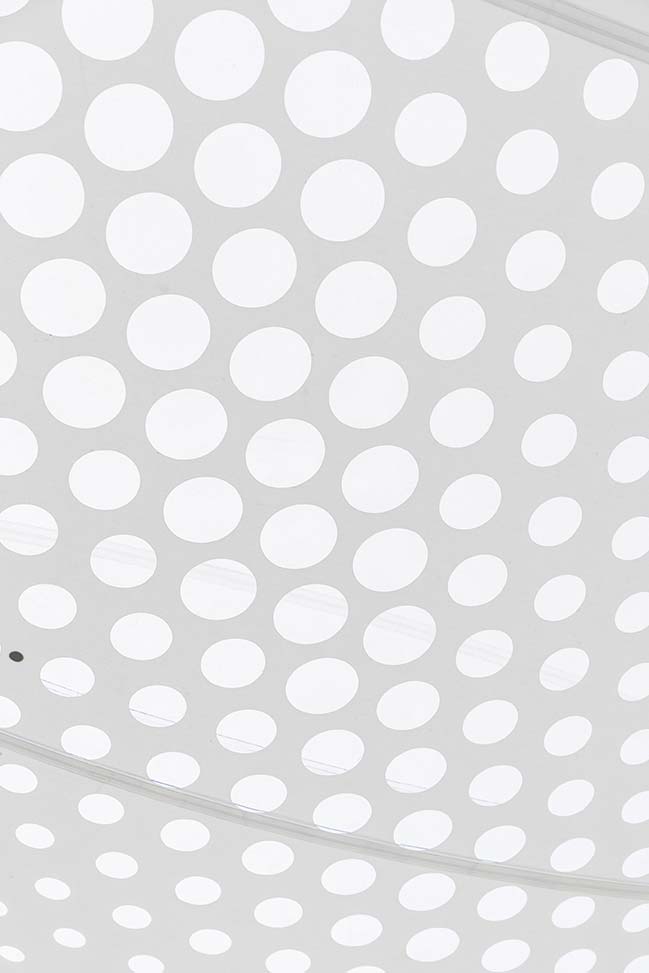
© Delfino Sisto Legnani and Marco Cappelletti
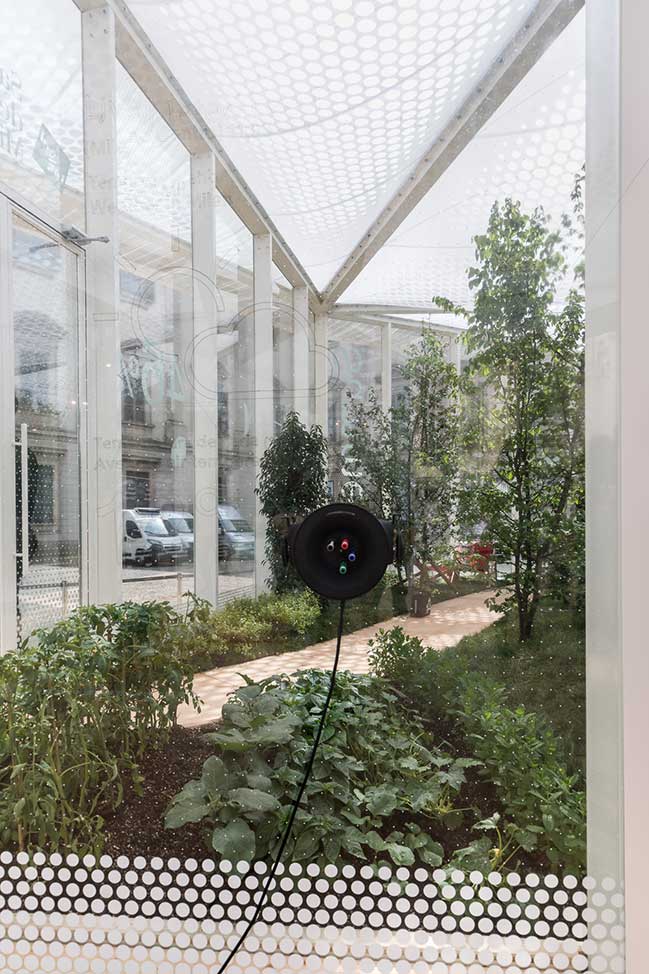
© Delfino Sisto Legnani and Marco Cappelletti
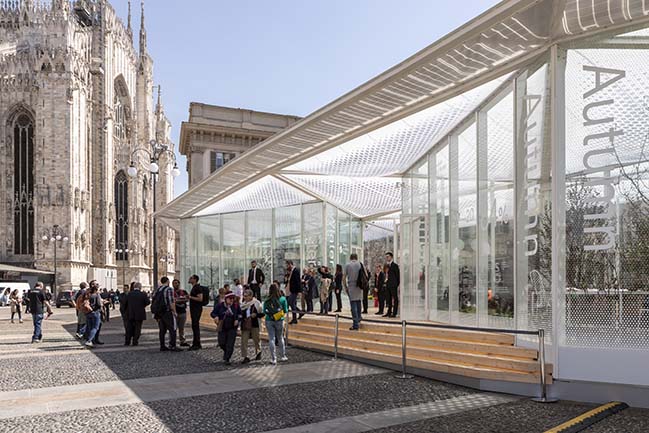
© Salone del Mobile
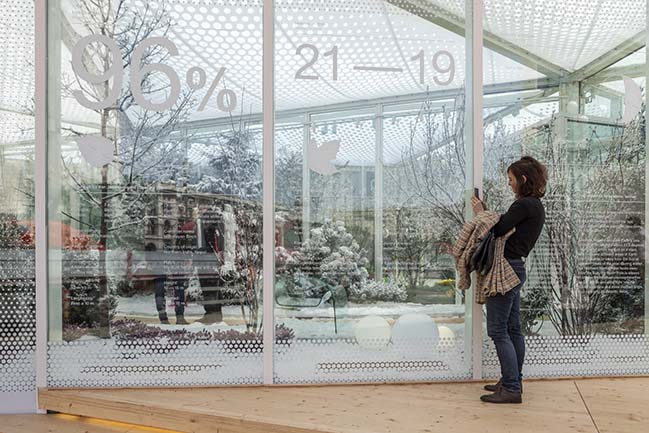
© Salone del Mobile
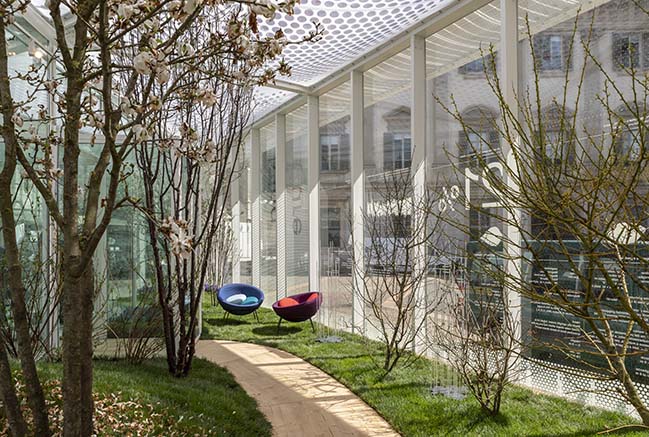
© Salone del Mobile
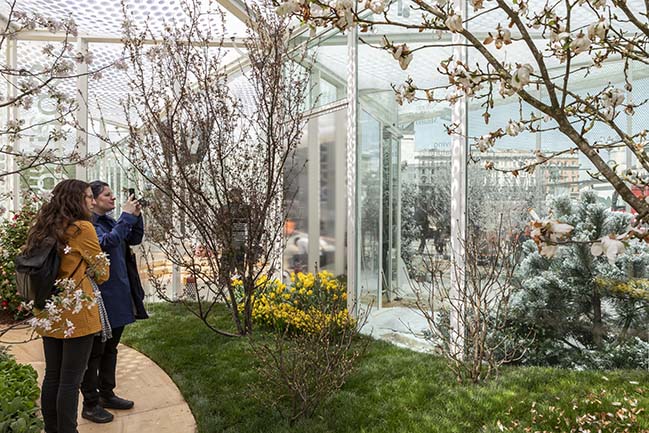
© Salone del Mobile
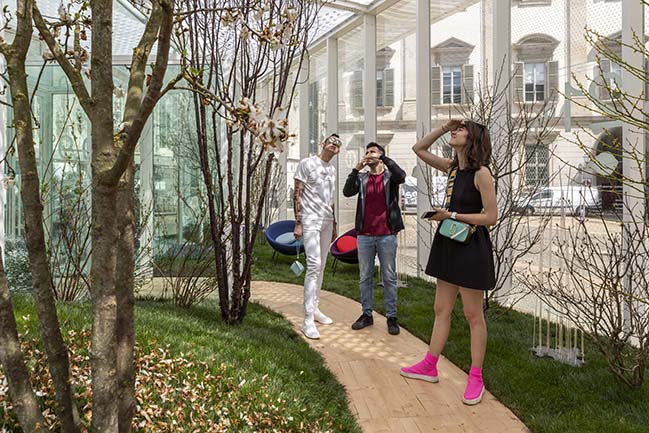
© Salone del Mobile
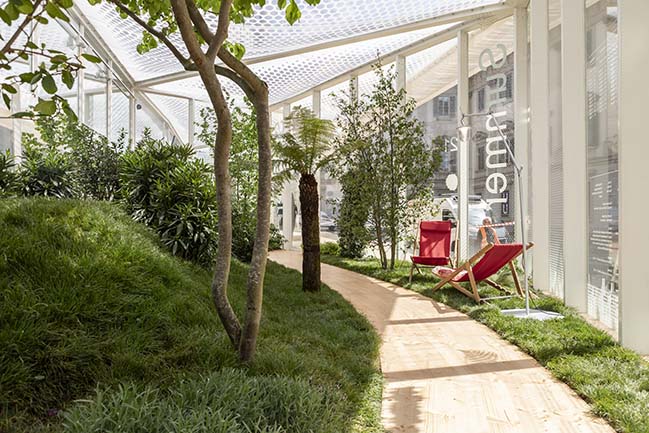
© Salone del Mobile
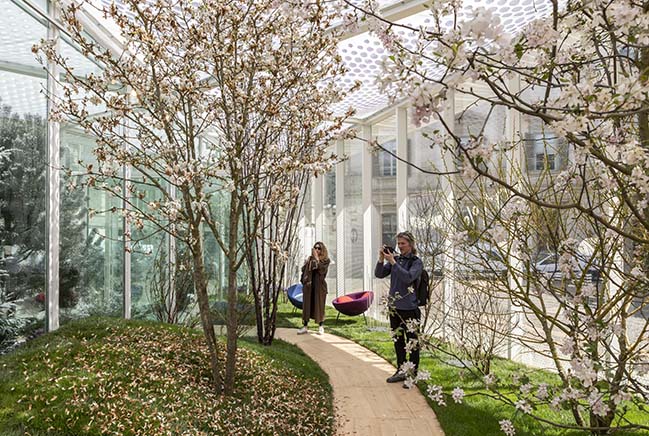
© Salone del Mobile
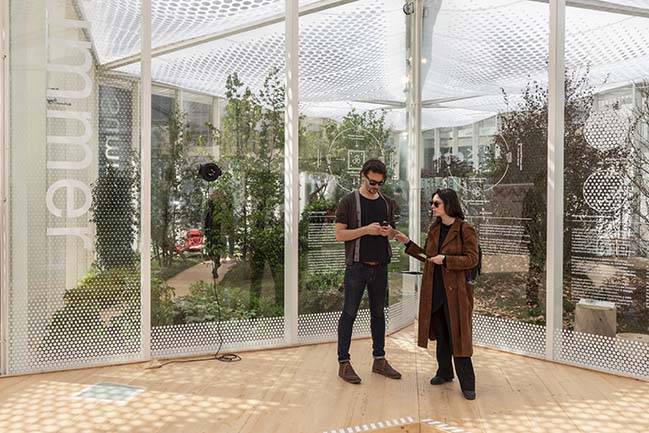
© Salone del Mobile
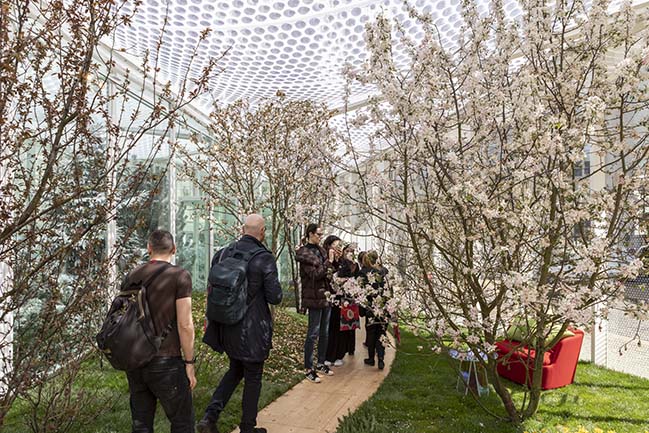
© Salone del Mobile
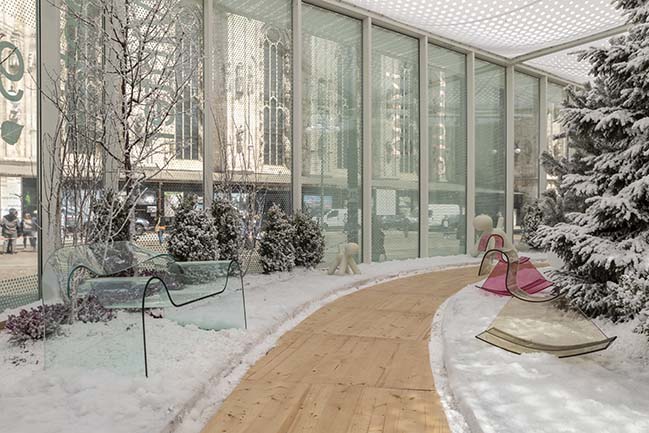
© Salone del Mobile
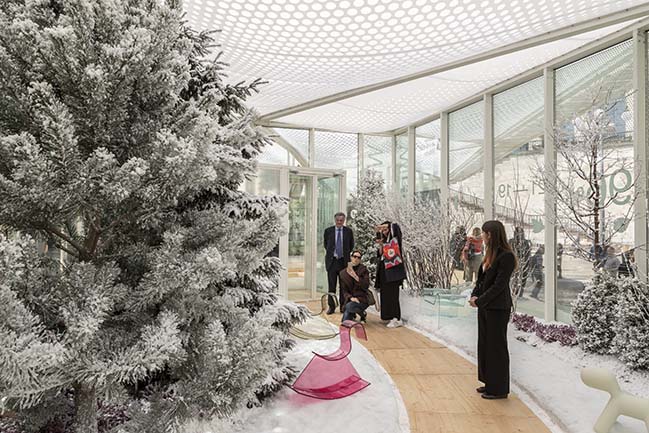
© Salone del Mobile
Carlo Ratti Associati's Garden Pavilion with the Four Seasons opens in Milan
04 / 18 / 2018 Living Nature, a garden pavilion where all four seasons coexist with each other simultaneously, has opened, 17 April, in Milan’s main square, Piazza del Duomo
You might also like:
Recommended post: I House In Shibuya by Moriyoshi Naotake Atelier
